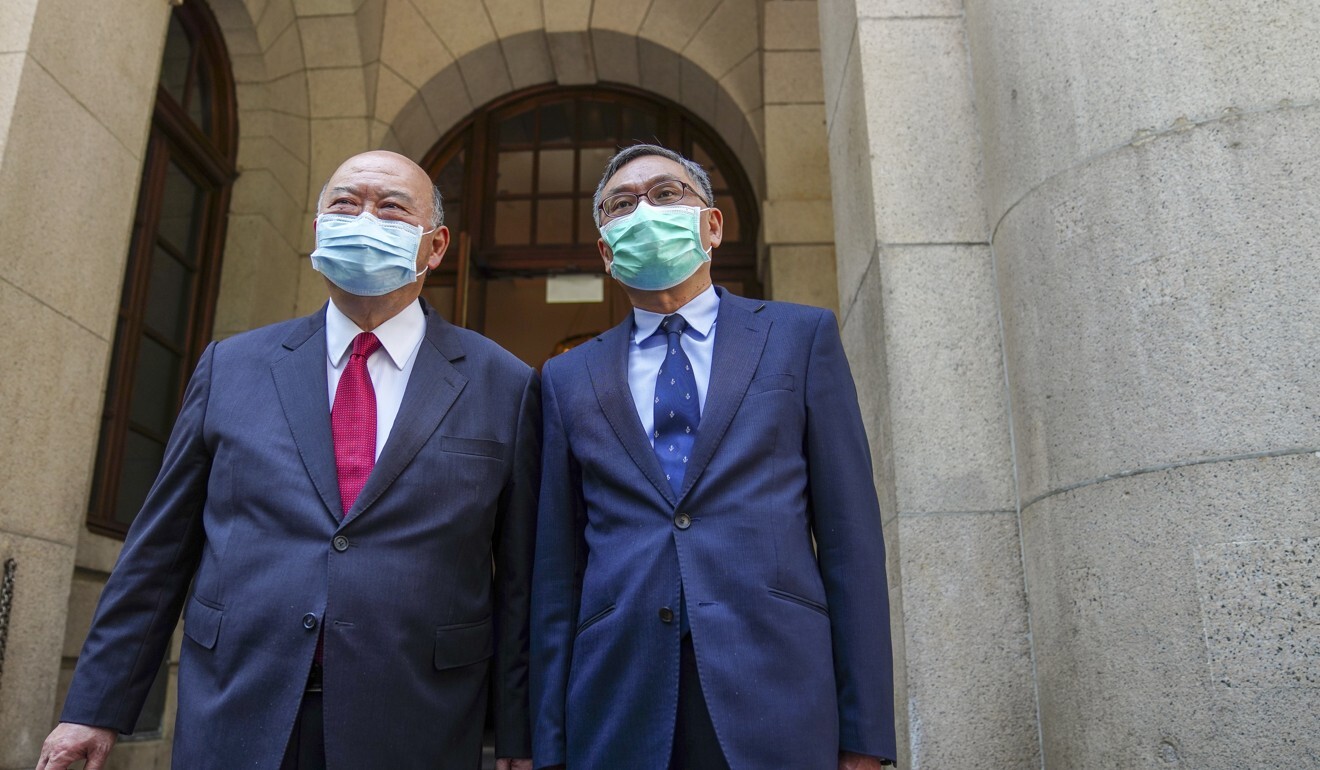
Judicial reforms should not be based on unhappiness over court rulings, Hong Kong’s retiring top judge warns in speech reflecting on decade-long tenure
- Chief Justice Geoffrey Ma also rejects any idea that he faced pressure from Beijing or local governments while at the helm
- He mounts robust defence of city’s judicial independence, but acknowledges challenges under the national security law
Hong Kong’s outgoing Chief Justice Geoffrey Ma Tao-li on Tuesday warned that judicial reform should not be based on dissatisfaction with court rulings, while also rejecting any notion of pressure from the local or Beijing governments influencing decisions during his decade-long tenure.
Ma remained hopeful the judiciary would continue to dispense justice within its ambit, giving assurances that judges would stay true to their oath to hand down impartial and fair rulings without fear or favour, despite a highly politicised atmosphere.

Ma, 64, also rejected public criticism from either side of the political divide over court rulings that have been seen as too lenient or too harsh towards opposition activists prosecuted for protest-related offences over the past two years.
Referring to the circumstances encountered by judges in recent months, Ma said while nobody liked hearing “name-calling” or seeing “doxxing” of them in the press, it would be wrong also to say that criticism would apply pressure on judges to act.
“I know of no instance, I know of no judge who will feel the pressure to change his or her approach to the dealing of a case just because of any criticisms from whomever ... whether from the press, whether from individuals, whether from organisations. The reason for this is judges ... have taken an oath, and the oath is to follow the Basic Law to decide cases without fear and favour.”
Ma said he had constant exchanges with judges from the Supreme People’s Court in Beijing on serious topics, such as the differences in the mainland Chinese and Hong Kong legal systems. Neither mainland nor local authorities had dictated how he should rule on any case, he stressed.
“Do I get that pressure? Have I got that pressure in the past 10 years? My answer to you, truthfully, is no,” he said.
Chief Justice issues rare rebuke of judge who compared protesters to ‘terrorist army’
Last November, Zhang Xiaoming, deputy director of the State Council’s Hong Kong and Macau Affairs Office, suggested the need for judicial reform. He cited the views of former Court of Final Appeal judge Henry Litton, who said local courts had “put a slant on the Basic Law by applying obscure norms and values from overseas which are totally unsuited to Hong Kong’s circumstances”.
At his farewell press briefing on Tuesday, Ma weighed in on the topic without prompting in his opening remarks.
The public would find it hard to accept reforms if they were based on unhappiness with court rulings, he said.
The last few months of his tenure coincided with Beijing’s move in June last year to impose the national security law in Hong Kong to ban acts of secession, subversion, terrorism and collusion with foreign forces.
Beijing insists the sweeping legislation is necessary to prevent more of the anti-government protest violence and chaos of 2019, but critics complain it has created an atmosphere of fear and deprived dissidents of protection under Hong Kong laws, as they could be sent across the border for trials in serious cases.
Offering a rare opinion on the issue, Ma said there was no straight answer as to whether the courts could give residents full protection, and acknowledged that judges’ hands were tied in that respect, although he insisted they would do their best.
“I would say yes it does [offer protection], within the power the court has. The courts just don’t have unlimited powers,” he said.

Under the new law, Hong Kong’s chief executive has the power to designate a pool of judges for national security cases, but the list of judges has yet to be announced – contrary to the judiciary’s track record of transparency.
Ma said he would leave the matter of disclosure to the city’s leader because she was the one deciding the designation. He would not divulge whether Chief Executive Carrie Lam Cheng Yuet-ngor had consulted him before drafting her list of judges, citing confidentiality.
The departing chief justice would not be drawn into the politically contentious topic of whether there was indeed a separation of powers in Hong Kong’s system.
While previous judgments by the top court have suggested the existence of such a concept, officials and pro-establishment figures have rejected such labelling as a Western interpretation.

During his tenure, the Court of Final Appeal and the judiciary have ruled on a range of landmark cases, including human-rights challenges from sexual minorities and constitutional issues with far-reaching implications.
Ma said it was unprecedented that he had to issue an 18-page statement last year to defend the judiciary to clear misconceptions.
“In the handling of cases, judges are going to look only at the law, legal principle and the spirit of the law,” he said. “[They will] never lose sight of this in deciding the case fairly and justly and won’t be influenced by any beliefs … particularly political beliefs.”
“If there are people who want to express a view based on their understanding of the law, the facts and evidence, then this is what the media always advocates, this is freedom of speech,” she said. “I really would not see how these comments would put pressure on the judiciary.”
Additional reporting by Lilian Cheng



